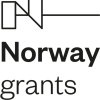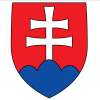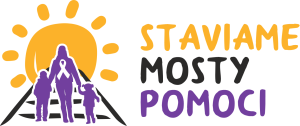The Krupina Social Services Center and the Banskobystrica Self-Governing Region were successful in the project, which will bring several activities to support victims of domestic and gender-based violence by the end of April 2024. In the Banská Bystrica region, they will organize educational campaigns for the general public, but also train those who work with victims of domestic violence.
At the opening conference, which took place online on September 6, 2022 and launched the project, Anna Surovcová from the civic association Center of Social Services KA presented the vision of the project: “I am looking forward to the fact that we will be able to support already existing services for victims of domestic and gender-based violence, and at the same time move and ensure the provision of these specialized services to other districts in the Banská Bystrica region.”
The project Staviame Mosty Pomoci is financed by the Norwegian Financial Mechanism and the Slovak state budget. It is aimed at victims of domestic violence and victims of gender-based violence and will last until the end of April 2024.
What is the project about, whose motto has become the phrase “there is a solution”?
At the introductory conference, the participants heard in detail what the project Staviame Mosty Pomoci covers. Many activities are planned and all have one goal: to help women and children to escape from domestic violence and to live fully without fear and trauma.
What will the project Staviame Mosty Pomoci bring?
· It will help maintain or increase the quality of counseling services and support for victims of violence.
· Counts on the expansion of services for victims of domestic violence in the districts of Banská Bystrica, Poltár, Lučenec and Brezno.
· Thanks to it, professionals who deal with the problems of victims of domestic violence on a daily basis can be trained, for example, in how to help abused children, children after the divorce of their parents, or victims of domestic violence.
· The project also plans to launch an educational campaign to help the public to realize what is already considered domestic violence and also to raise awareness of where women and children can find professional help.
We thank the representatives of the partner BBSK for their significant help in organizing it, as well as the speakers with individual inputs and also all the participants. Thanks also go to the colleagues who during the discussion brought new ideas to the topic of protecting victims of domestic or gender-based violence.
We believe that “building bridges of help” will be successful together in further cooperation.


